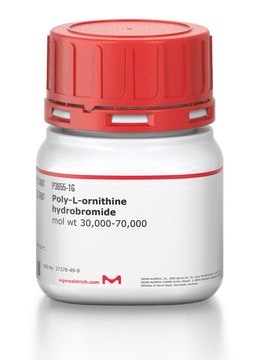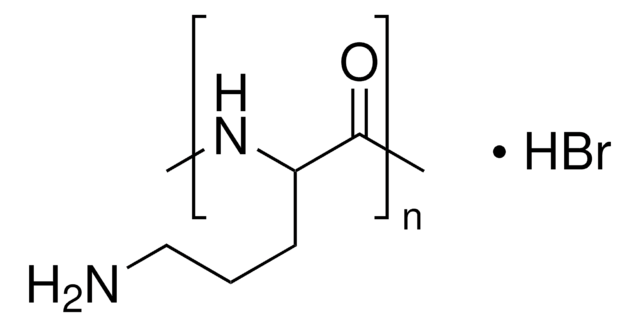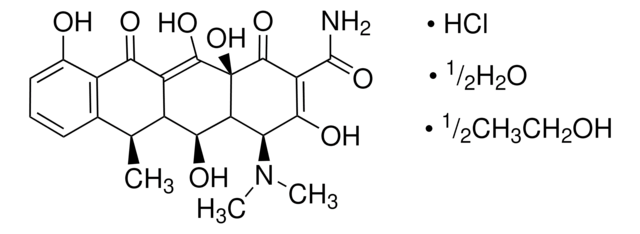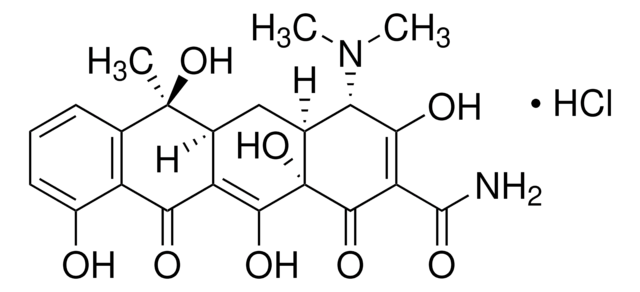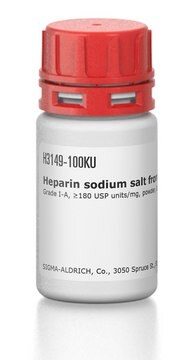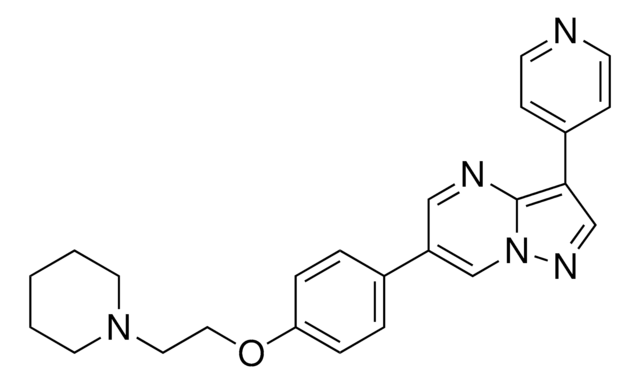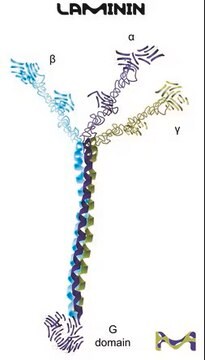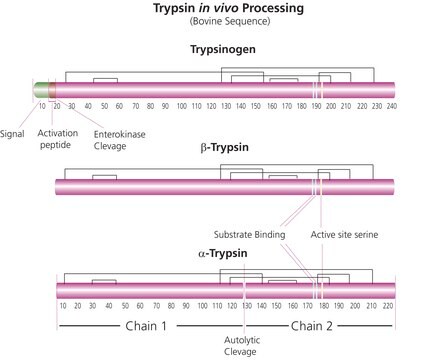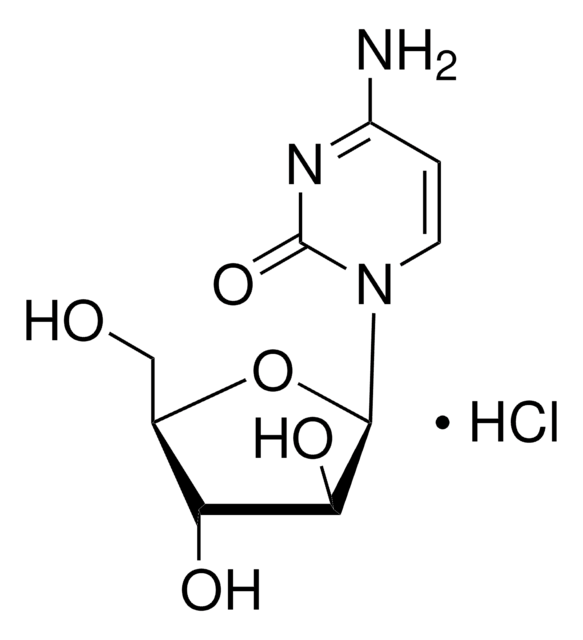P8638
Poly-DL-ornithine hydrobromide
suitable for cell culture, Mol wt 3,000-15,000
Synonym(s):
DL-Ornithine homopolymer hydrobromide
About This Item
Recommended Products
Product Name
Poly-DL-ornithine hydrobromide, mol wt 3,000-15,000
form
powder or solid
mol wt
3,000-15,000
technique(s)
cell culture | mammalian: suitable
color
white to off-white
storage temp.
−20°C
SMILES string
Br.NCCCC(N)C(O)=O
InChI
1S/C5H12N2O2.BrH/c6-3-1-2-4(7)5(8)9;/h4H,1-3,6-7H2,(H,8,9);1H
InChI key
GWRQMKDBBHFVIZ-UHFFFAOYSA-N
Looking for similar products? Visit Product Comparison Guide
Application
Biochem/physiol Actions
Analysis Note
Other Notes
Storage Class
11 - Combustible Solids
wgk_germany
WGK 3
flash_point_f
Not applicable
flash_point_c
Not applicable
ppe
Eyeshields, Gloves, type N95 (US)
Choose from one of the most recent versions:
Already Own This Product?
Find documentation for the products that you have recently purchased in the Document Library.
Customers Also Viewed
phosphoprotein are critical for the induction of oxidative stress
in rabies virus infection
Articles
Humankind has utilized protein materials throughout its existence, starting with the use of materials such as wool and silk for warmth and protection from the elements and continuing with the use of recombinant DNA techniques to synthesize proteins with unique and useful properties.
Our team of scientists has experience in all areas of research including Life Science, Material Science, Chemical Synthesis, Chromatography, Analytical and many others.
Contact Technical Service
